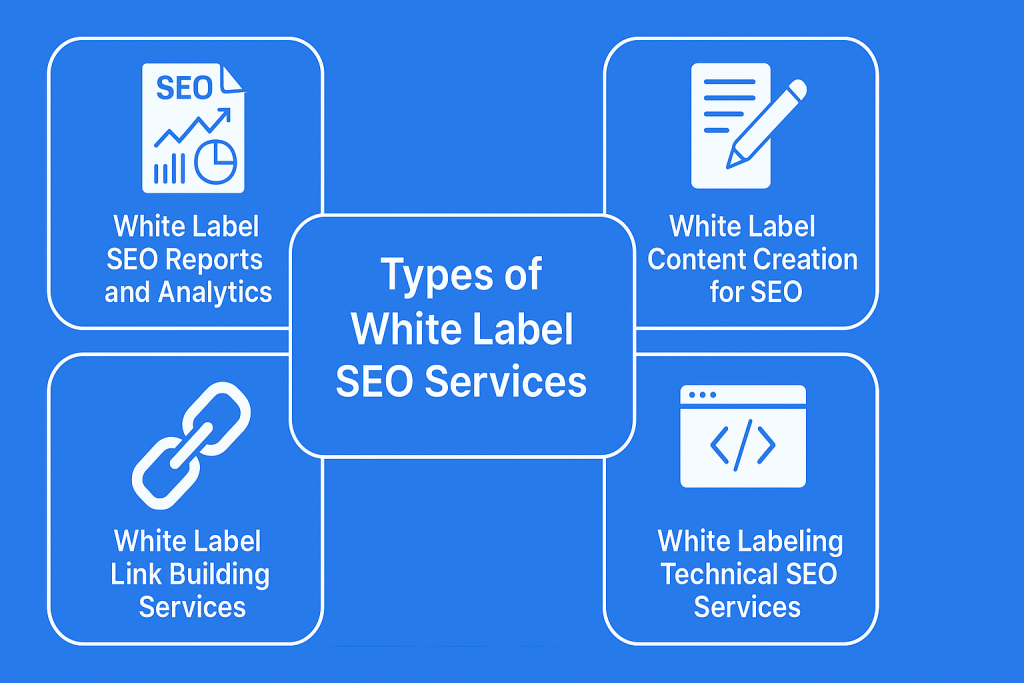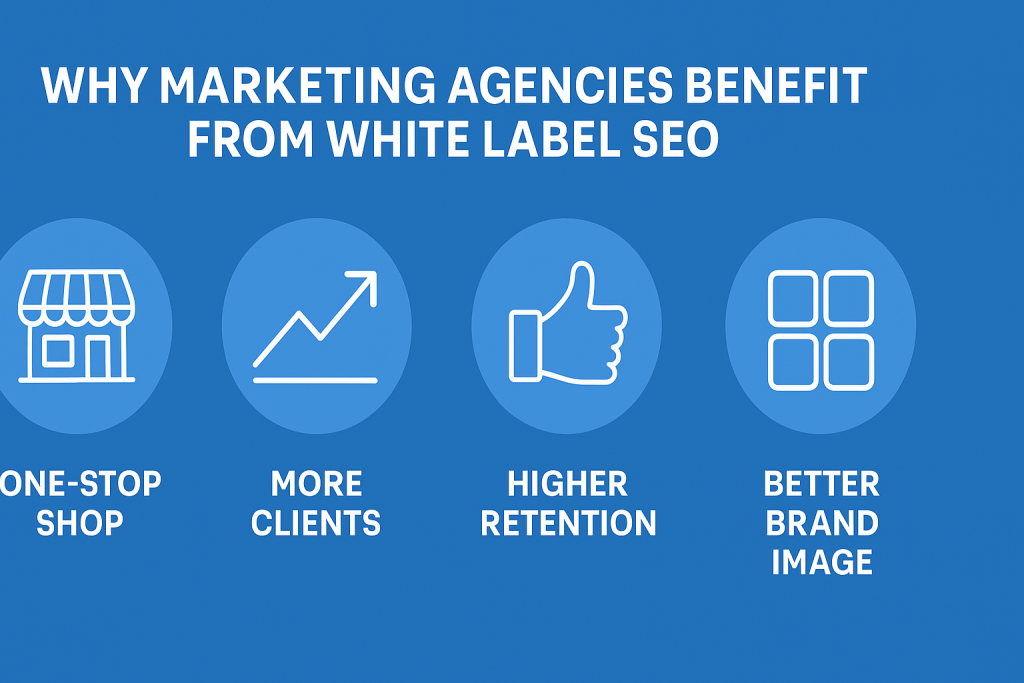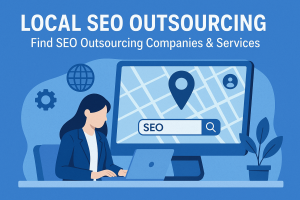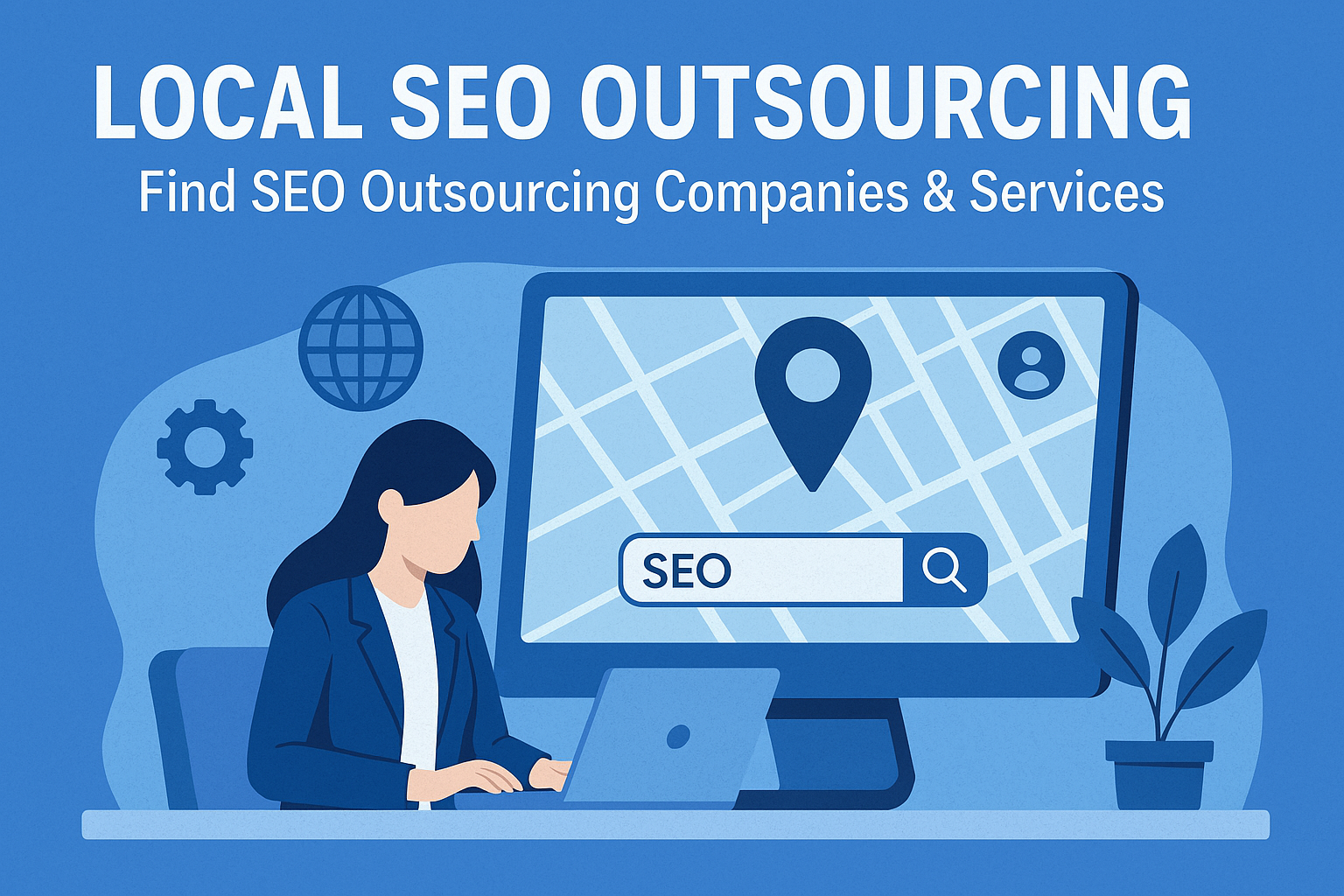Choosing the Best White Label SEO Service from Good White Label SEO Companies: SEO Outsourcing

Sanya Kaushal
Sanya is a seasoned SEO and content writing expert with a 10 years of experience. She is skillfully driving organic growth and crafting search-optimized content that engages audiences and elevates brand visibility across industries.

I’ve been in the SEO game for 10 years now. In all that time, I’ve seen trends come and go—but one cost-saving strategy that consistently comes through for marketing agencies is white label SEO.
Whether you’re just getting started or looking to scale your current agency, white label SEO can save you time, money, and a whole lot of stress. In this guide, I’m going to walk you through everything—from what white label SEO actually is, to how it differs from traditional SEO services, and all the awesome benefits it brings to your marketing efforts.
Table of Contents
What Is White Label SEO?
How White Label SEO Differs from Traditional SEO Services
Types of White Label SEO Services
Why Marketing Agencies Benefit from White Label SEO
Integrating White Label SEO into Your Agency Services
White Label SEO for Ad Agencies
How to Present White Label Services to Clients
Branding Considerations for White Label Partnerships
The White Label SEO Process Explained
Client Onboarding
Provider Selection
Strategy Development
Execution and Monitoring
Reporting
Pricing Models and Negotiation Tips
How to Choose the Right White Label SEO Provider
Key Criteria for Selection
Questions to Ask
Red Flags to Watch Out For
Real-World Success Stories and Case Studies
Potential Drawbacks and How to Mitigate Them
Advanced White Label SEO Strategies and Future Trends
Wrapping Up and Final Thought
What Is a White Label Provider/SEO Reseller?
Imagine this: you sell SEO services to your clients, but you don’t have to do the heavy lifting yourself. Instead, you partner with an expert team, that works behind the scenes, and you simply add your brand’s name to their work. That’s white label SEO in a nutshell.
In traditional SEO, you’re responsible for content writing, link building, technical fixes, and everything else that makes a website rank. With a white label SEO firm, you tap into the specialized skills of professionals who are already experts in these areas. You get to focus on your clients and growing your business while your SEO partner handles the nitty-gritties.
How White Label SEO Differs from Traditional SEO Services
Let’s break it down in simple terms. When you handle SEO in-house, you build everything from scratch. You need to hire and train an in-house team, invest in expensive SEO tools, and keep up with ever-changing algorithms. It’s a huge commitment!
But with a white label SEO reseller program, you don’t have to worry about any of that. Here’s why:
Outsourced Expertise: Instead of spending time and money hiring experts, you partner with professionals who already have the know-how.
Time Savings: No more juggling multiple projects or struggling to keep up with the latest trends. Your partner handles it all, giving you more time to focus on client relationships and strategy.
Cost Efficiency: You save money by not having to build a full in-house team. You pay for the services as needed, which keeps your overhead costs low and margins high.
Scalability: Need to take on more clients? Your white label partner can quickly scale up their services without you breaking a sweat.As you can see, white label SEO is not just a shortcut—it’s a smart business strategy that allows you to offer a comprehensive range of services without stretching your internal resources too thin.
Types of White Label SEO Services
White label SEO covers a broad spectrum of services, so you can choose exactly what you need for your agency.
Here’s a closer look at some common services offered by white label providers:

White Label SEO Reports and Analytics
Imagine delivering professionally designed reports to your clients that showcase exactly how well their site is performing—all with your branding. With white label reporting tools, you get detailed analytics without having to develop them yourself. It’s like having a high-tech dashboard that your clients can access anytime.
White Label Link Building Services
Quality backlinks are one of the most important factors for ranking. But building links is time-consuming and often tricky. With white label link building services, an expert team will handle all the outreach and negotiations, ensuring your clients get high-quality links that boost their authority and rankings.
White Label Content Creation for SEO
Content is king in the world of SEO, but creating high-quality, optimized content takes skill and time. By outsourcing content creation, you can deliver fresh, engaging, and SEO-friendly content to your clients without having to hire full-time writers.
White Label Technical SEO Services
Technical SEO can be a major headache, from fixing crawl errors to optimizing site speed and mobile responsiveness. With a white label partner, you get a team of experts who can handle all the technical details, ensuring that your client’s site is fully optimized for search engines.
White Label Local SEO Services
If your clients are local businesses, white label local SEO services can help them dominate their area. This might include optimizing their Google My Business profile, managing local citations, and ensuring that their online presence is consistent across all platforms.
White Label PPC and Social Media Integration
Some white label providers offer additional digital marketing services beyond SEO. This means you can bundle SEO with PPC or social media services to offer a full digital marketing package to your clients—making your agency a one-stop shop.
Why Marketing Agencies Benefit from White Label SEO
Now that you know what white label SEO is and the types of services available, let’s explore how an SEO reseller service really benefits your agency. I’m going to break this down into several key areas.
By integrating white label SEO team, you can offer a complete digital marketing solution to your clients. This means you can position your agency as a one-stop shop, which is incredibly attractive to businesses looking for cohesive strategies that deliver results. When you partner with a reputable white label provider, you’re essentially expanding your capabilities overnight.
Suddenly, you’re offering everything—from on-page SEO and content creation to technical fixes and in-depth reporting—all under your own brand. This not only attracts new clients but also helps you retain existing ones, as they value the convenience of having all their marketing needs met by one provider.

Increased Efficiency and Focus
What I love about white label SEO is that it frees up my time to focus on what I do best—strategic planning and client relationships. Instead of getting bogged down in the technicalities of SEO implementation, I can concentrate on building long-term partnerships and growing my agency. This is a win-win for everyone: clients get high-quality SEO work, and I get to focus on scaling my business.
Increased Focus on Growth
Outsourcing the heavy lifting means you can spend more time honing your business development strategies rather than focusing energy on in-house SEO.
For example, while your white label partner is busy doing keyword research and building backlinks, you’re free to meet new prospects and expand your client base.
Flexible Service Offerings
White label SEO services give you the flexibility to offer various packages. You might have a basic package for small businesses and a premium one for larger enterprises. This diversity allows you to cater to different market segments without significantly altering your internal operations.
Leveraging Cutting-Edge Technology
Working with a specialized provider means you get access to advanced SEO tools and platforms—tools that might be too expensive to buy or learn on your own. These tools can provide deep insights, from real-time keyword tracking to comprehensive competitor analysis, which further enhances the quality of service you deliver.
Building Trust and Long-Term Relationships
The more comprehensive your service offering, the more likely clients are to stay with you. When your white label partner consistently delivers high-quality work that aligns with your brand, you build a reputation for excellence. Clients appreciate the professionalism and the tangible results, which in turn boosts client retention and leads to referrals.
Cross-Selling and Upselling Opportunities
Having a robust portfolio that includes SEO, PPC, social media, and content marketing opens up plenty of opportunities for cross-selling. For instance, if a client is happy with your SEO results, they might be interested in testing a PPC campaign. This not only increases your revenue but also makes your agency indispensable to your client’s overall digital strategy.
The White Label SEO Process Explained
A solid process is the backbone of a successful white label SEO strategy. Let me walk you through each step of the process that I follow with my white label partners.

Client Onboarding
This is where everything begins. The onboarding process is crucial because it sets the stage for the entire campaign. I always start by collecting as much information as possible about my client’s business, goals, and target audience. This includes:
Initial Audit: Conducting a comprehensive SEO audit of their website to identify key issues.
Goal Setting: Defining measurable KPIs like organic traffic growth, keyword rankings, and lead conversion rates.
Branding Guidelines: Sharing my agency’s branding guidelines with the white label partner so that every piece of work reflects our look and feel.
Questionnaires and Workshops: Sometimes, I hold a quick workshop or send over a detailed questionnaire. This way, both my team and the partner are aligned from the get-go.
Provider Selection
Choosing the right provider is critical. I look for partners who have:
Proven Track Records: I always ask for case studies and testimonials.
Clear Communication Channels: Regular updates and a dedicated account manager are non-negotiable.
Advanced Tools: Ensure they use the latest SEO software and methodologies, whether it’s SEMrush, Ahrefs, or custom in-house tools.
Cultural Fit: It’s important that they share a similar work ethic and commitment to quality. This makes collaboration much smoother.
Strategy Development
Once the provider is on board, we collaborate on developing a strategy tailored to the client’s needs:
Keyword Research and Analysis: In-depth keyword research identifies the best keywords and opportunities.
On-Page and Off-Page Plans: Outlining exactly what will be optimized on the website and what kind of outreach will be done to build authority.
Content Strategy: Developing a plan for content creation, including blog posts, landing pages, and any multimedia content.
Technical Plan: Addressing all the technical aspects of SEO such as site speed, mobile optimization, and fixing crawl errors.
Execution and Monitoring
The execution phase is where all the planning turns into action. Here’s how it works:
Implementation: The white label partner begins working on the strategy—updating meta tags, building links, creating content, and more.
Tracking Tools: We rely on SEO tools like Google Analytics and Search Console to track progress. Regular monitoring allows us to see what’s working and what needs tweaking.
Ongoing Adjustments: SEO is never a “set it and forget it” service. Regular review meetings help adjust strategies based on real-time data.
Reporting
Reporting is key. Clients must see the value of their investment:
White-Labeled Reports: These reports, fully branded with your agency’s logo and style, outline what’s been done, how the website is performing, and what the next steps are.
Analytics Dashboards: Some providers offer client-facing dashboards where data is updated in real-time.
Transparent Metrics: I always make sure that reports cover key performance indicators such as keyword rankings, organic traffic, and conversion rates.
Actionable Insights: Beyond just numbers, the reports also suggest actionable insights that can drive future campaigns.
White Label SEO Pricing: Models and Negotiation Tips
Money matters, right? One of the greatest advantages of white label SEO is that you get to choose a pricing model that suits your budget and your clients’ needs.
Here are some common models:
Monthly Retainers
Most white label SEO services work on a monthly retainer basis. This means you pay a fixed fee every month for ongoing services. It’s great for budgeting and ensures consistent results over time.
Project-Based Pricing
For clients with specific, one-off needs, project-based pricing is ideal. You know exactly what you’ll pay for a clearly defined project, whether it’s a site audit or a link-building campaign.
Hourly Rates
Some agencies prefer to work on an hourly basis, especially when the scope of the project is uncertain. This model is flexible and can be great if you need specialized tasks done quickly.
Custom Pricing
If you have unique requirements, many providers offer custom pricing models. This can include a blend of retainers, project fees, and hourly work—tailored to your exact needs.
Negotiation Tips
Clear Scope of Work: Ensure every service and deliverable is clearly defined. This avoids hidden fees or surprises.
Regular Reviews: Set up regular review meetings to evaluate the work. Adjust the pricing if the scope of work evolves.
Transparent Communication: Ask for detailed breakdowns in the pricing proposal. This helps you understand where each dollar is spent.
Flexibility: Negotiate terms that allow you to scale up or scale down services as your business grows or changes.
How to Choose the Right Agency With White Label SEO
Selecting the right partner is as important as the service itself. Here are some critical points to consider:

Key Criteria for Selection
Experience and Track Record: Always check for case studies, testimonials, and references. A provider with a long history of running a successful SEO campaign is a safe bet.
Transparent Processes: They should have clear, documented processes. This includes everything from strategy development to reporting.
Communication: Look for a provider with dedicated account managers who offer regular updates. Prompt responses are crucial.
Customization and Flexibility: They should be willing to tailor their services to match your specific requirements and brand guidelines.
Technological Capabilities: The provider should have access to advanced SEO tools and technology. This ensures the strategy is based on the latest data and trends.
Ethical Practices: SEO should always be done the “white hat” way. Avoid partners promising quick fixes or using shady tactics that could eventually harm your client’s reputation.
Questions to Ask During Review
How long have you been in business, and can you provide case studies?
What does your monthly reporting process look like?
How do you ensure quality and consistency in your work?
What are your pricing models, and can we see a detailed breakdown?
How do you handle communication during the project, and who will be our point of contact?
What happens if the results don’t meet expectations?
Red Flags to Watch Out For in a Firm
Instant Results Guarantees: SEO takes time. Any promise of overnight success is a red flag.
Vague Pricing: If they’re not upfront about costs, it’s likely you’ll encounter hidden fees.
Poor Communication: If it takes days to get a response, that’s a sign you might face delays in the future.
No Case Studies or Testimonials: A reputable provider should be more than happy to share their success stories.
Unethical Practices: Avoid providers that mention techniques like cloaking, keyword stuffing, or other black hat strategies.
White Label SEO Services for Ad Agencies
Even if your agency is primarily known for running ads, adding SEO into the mix is a no-brainer. Here’s why:
Complementary Strategies: PPC and SEO experts can work hand in hand. The insights you gain from paid campaigns, like keyword performance and audience behavior, can inform your organic strategy. Conversely, strong SEO performance can boost the effectiveness of your ads by increasing brand credibility.
Holistic Service Offering: Today’s clients prefer agencies that offer a full suite of digital marketing services. If you’re known solely as a PPC expert, you might miss out on businesses looking for comprehensive online strategies. By adding SEO, you diversify your service portfolio and become more attractive to potential clients.
Improved ROI for Clients: When your clients see an improvement in both their paid and organic search efforts, they’re more likely to stick with your agency for the long haul. This integrated approach means that you’re not just a vendor—you’re a strategic partner in their growth.
How to Present White Label Services to Clients
Effective presentation is key. Here’s how I do it:
Be Transparent About the Benefits: I always explain that outsourcing to experts means faster, better results. For instance, I mention that by working with seasoned SEO professionals, we can stay ahead of algorithm changes and deliver measurable improvements in rankings.
Share Real Success Stories: Use simple language and concrete examples. I often talk about how a particular white label project helped boost a client’s website traffic by 50% over a few months. Success stories build credibility and make it easier for clients to understand the value of your services.
Outline the Process Clearly: When clients know what to expect—from the initial audit to the monthly reporting—they’re more confident in your ability to deliver. I provide a step-by-step overview, so they understand the journey and the role each phase plays in their overall success.
Emphasize Savings and Efficiency: Explain that because white label SEO is cost-effective, those savings can be passed on to them as improved marketing results. It’s all about adding value without inflating budgets.
Branding Considerations for White Label Partnerships like The Hoth
Your brand is your promise to your clients. When you use white label SEO, every piece of deliverable must reinforce your agency’s image. Here’s what I focus on:
Customization of Deliverables: All reports, dashboards, and proposals should carry your logo and follow your brand guidelines. This unified branding helps build trust and positions you as the authority.
Consistent Messaging: Whether it’s an email, a meeting, or a report, the tone and look should be consistent with your overall brand identity. Consistency builds recognition and reassures clients that they’re in good hands.
Client-Facing Portals: A branded client portal not only looks professional but also gives your clients a real-time view of their campaign progress. I’ve found that when clients can see live data and well-organized reports under my agency’s branding, it reinforces my agency’s commitment to transparency and quality.
Educational Content: Part of your branding should be about educating your clients on why your approach works. I create simple guides and blog posts that explain SEO tactics and results in everyday language. When clients understand what’s happening behind the scenes, they become more confident in your service and more likely to refer others.
Advanced White Label SEO Strategies and Future Trends
Once you’ve mastered the basics, it’s time to think ahead and explore advanced strategies. The digital marketing landscape is always evolving, and white label SEO is no exception.
White Label SEO Agency for Specialized Industries
Some industries have unique SEO needs. For example:
Healthcare: Requires compliance and accurate information.
Financial Services: Must focus on building authority and trust.
E-Commerce: Needs a strategy that balances content, technical optimization, and robust link-building. Tailoring your white label SEO services to meet industry-specific requirements can give your agency a significant competitive edge.
International and Enterprise-Level SEO
If your clients operate in multiple countries, you’ll need to think globally:
Multilingual SEO: Ensure your provider has expertise in handling content in various languages.
Local Nuances: Account for differences in search behavior and cultural nuances across regions.
Enterprise Solutions: Larger companies often require customized enterprise-level solutions that offer deep analytics and comprehensive reporting. Investing in these areas can help you serve a wider audience and attract high-value clients.
Leveraging AI and Automation
Artificial intelligence and automation are changing the game:
Automated Reporting: Tools that generate real-time, white-labeled reports save time and improve accuracy.
AI-Driven Insights: Use machine learning to analyze trends and adapt strategies more quickly.
Workflow Automation: Automate repetitive tasks like data collection and initial analysis, so your team can focus on strategy. These advancements not only streamline operations but also provide a competitive edge by delivering faster, more accurate results.
Expanding Service Offerings with White Label Partnerships
Beyond SEO, many white label providers also offer additional services like PPC, social media management, and content marketing. Integrating these services can help you create a comprehensive digital marketing package that appeals to larger clients and boosts your overall revenue.
Bundled Services: Offer packages that combine SEO with PPC and content marketing.
Cross-Selling Opportunities: Use the success of one service to promote additional offerings.
Holistic Strategy: Present an integrated approach that addresses all facets of digital marketing, ensuring that your clients see the complete picture. This integrated strategy not only enhances your service offering but also builds deeper, long-lasting relationships with your clients.
Wrapping Up and Final Thoughts
So, what’s the bottom line? White label SEO is an incredibly powerful tool that allows marketing agencies to expand their services, scale efficiently, and deliver amazing results without the headaches of managing everything in-house. Whether you’re a small agency or an established firm, integrating white label SEO offers benefits across the board—from increased client retention and enhanced brand consistency to cost savings and improved scalability.
Thank you for sticking with me through this comprehensive guide. I hope you’ve found it insightful and practical. If you have any questions, suggestions, or need further clarification on any of the topics, feel free to leave a comment or reach out directly. I’m here to help you succeed in every step of your digital marketing journey!







